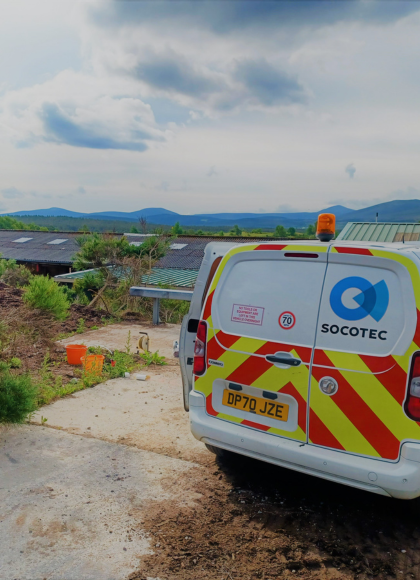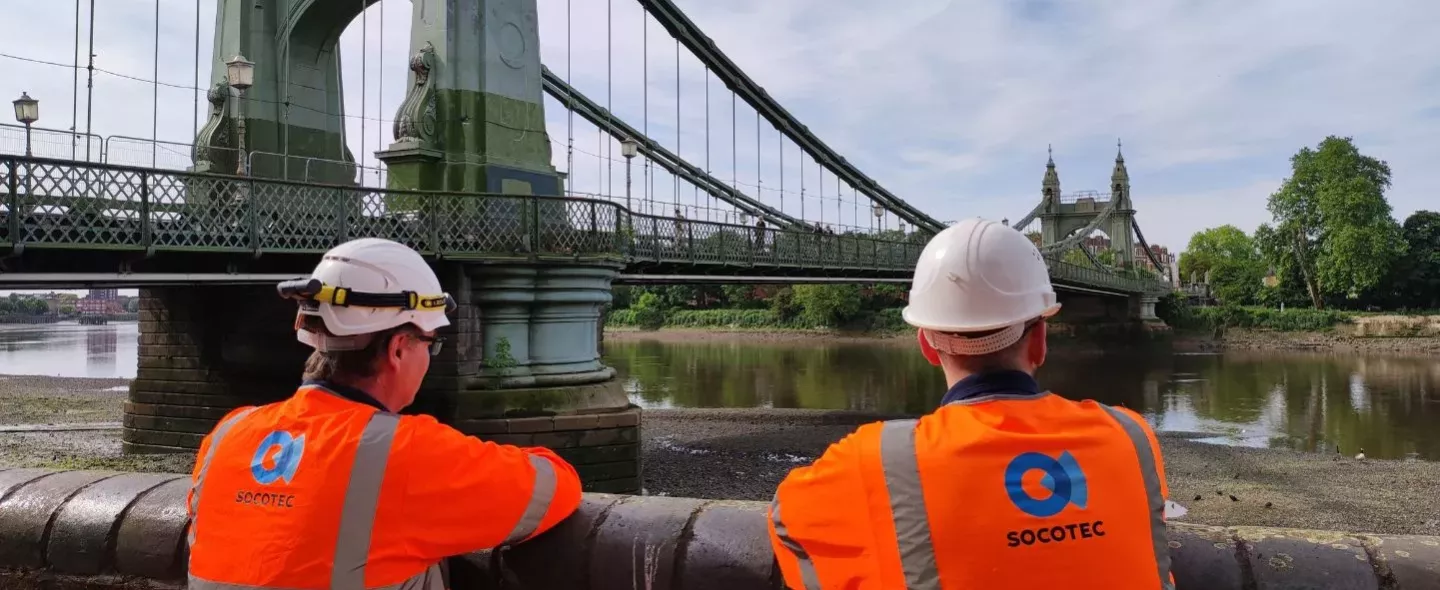Be a part of building a better and safer world, smarter with a career in our Infrastructure Division.
From skyscrapers to stadiums, from railways to tunnels, working in our Infrastructure Division means you will be providing essential services that ensure the safety, quality, and sustainability of various infrastructure projects across the UK.
Our Infrastructure division consists of five teams that specialise in different areas of testing, monitoring, and investigating the ground, foundations, structures, and materials of new and existing developments.
Learn more
Our Monitoring Team
Our monitoring team’s first steps is to monitor the surroundings of a potential development. This includes monitoring aspects such as vibrations from features that are already present around the site for a new development. By doing so, we can understand what potential factors could influence a new development. For example, in London when a new development is needed, it may be affected by the vibrations from the London Underground, which could overall effect structural integrity and could cause problems in the future. By monitoring this beforehand, preventative measures can be put in place to avoid future complications. We also conduct monitoring on already completed infrastructure to prevent any future damage that may occur.
Our Foundations Team
Our foundations team assist developers in the early stages of construction. We conduct rigorous testing on foundation structures for new infrastructure projects to ensure that the foundations put into place are suitable and safe for supporting a building. These tests include roughly 125,000 integrity tests and 700 load tests each year for a variety of clients throughout the UK. While the work our teams do is not always visible to the eye, the structures built on the foundations often stand tall and are recognisable, such as the Shard in London.
Our Ground Investigation Team
Our Ground Investigation (GI) team usually complete their work before construction commences. We provide testing that is essential in the primary stages of a new development as we test the ground for future uses. Through analysis, we can then deliver reports with our findings and any recommendations we may have. This is important as it helps us identify what the ground is composed of in that area, and therefore whether it is safe to continue construction. We assist around 500-600 projects per year throughout the UK, from large scale projects to small scale, working on a variety of infrastructure projects from tower blocks to tunnels.
Our Structures and Pavements Team
Our Structure’s and Pavements team offer a wide range of specialist services that are utilised by businesses throughout the UK. Predominantly, we offer structural investigations on infrastructure, including projects completed on railways, bridges, harbours, sports stadiums and more. These tests are important to ensure continuous safety as time goes on.
Our Materials Testing Team
Our Materials Testing teams mostly support new developments during the physical construction stage. Similar to our Foundations team, the Materials team mainly focus on testing concrete to ensure it is safe for use. The most common tests are stress tests and temperature tests, both of which are important, as the conditions in which the concrete was made can alter its characteristics dramatically. Site technicians collect samples from various sites and transfer them to our labs for testing, which overall means we can advise developers and ensure the safety of buildings.

Work on Exciting Infrastructure Projects
Explore the projects our Infrastructure Division has worked on
As part of our infrastructure team, you can work on exciting infrastructure projects across the UK, such as safeguarding ports with monitoring systems, delivering geotechnical and environmental data for habitat creation schemes, sustainability monitoring and preservation of historical structures.

As part of our infrastructure team, you can work on exciting infrastructure projects across the UK, such as safeguarding ports with monitoring systems, delivering geotechnical and environmental data for habitat creation schemes, sustainability monitoring and preservation of historical structures.



